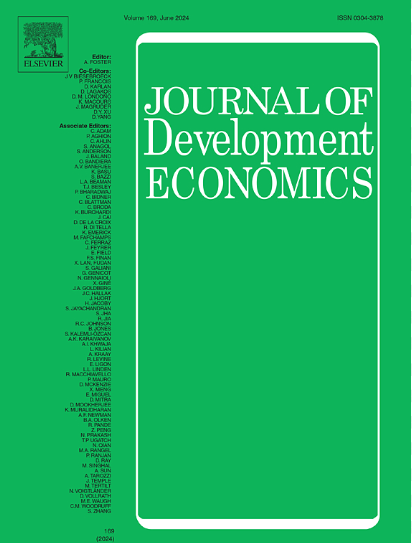可再生能源技术的质量信号和需求:来自随机现场实验的证据
IF 4.6
1区 经济学
Q1 ECONOMICS
引用次数: 0
摘要
太阳能技术与私人和社会回报有关,但由于对高质量产品的需求持续低迷,其技术潜力往往得不到实现。在塞内加尔的随机现场实验中,我们评估了三种类型的质量信号增加对高质量太阳能灯需求的潜力。我们发现,当向消费者提供退款保证时,对需求没有影响,但第三方认证或保修会增加需求,这与消费者不确定产品耐用性而不是实用性的概念是一致的。然而,尽管他们有更高的支付意愿,但他们愿意支付的价格仍远低于普通家庭的市场价格,这表明仅靠减少信息不对称不足以鼓励更广泛的采用。令人惊讶的是,我们还发现,在我们的设置中,有效的质量信号通过在最不熟悉产品的人中创造产品级效应来刺激对低质量产品的需求。本文章由计算机程序翻译,如有差异,请以英文原文为准。
Quality signaling and demand for renewable energy technology: Evidence from a randomized field experiment
Solar technologies have been associated with private and social returns, but their technological potential often remains unachieved because of persistently low demand for high-quality products. In a randomized field experiment in Senegal, we assess the potential of three types of quality signaling to increase demand for high-quality solar lamps. We find no effect on demand when consumers are offered a money-back guarantee but increased demand with a third-party certification or warranty, consistent with the notion that consumers are uncertain about product durability rather than their utility. However, despite the higher willingness to pay, the prices they would pay are still well below market prices for the average household, suggesting that reducing information asymmetries alone is insufficient to encourage wider adoption. Surprisingly, we also find that the effective quality signals in our setting stimulate demand for low-quality products by creating product-class effects among those least familiar with the product.
求助全文
通过发布文献求助,成功后即可免费获取论文全文。
去求助
来源期刊

Journal of Development Economics
ECONOMICS-
CiteScore
8.30
自引率
4.00%
发文量
126
审稿时长
72 days
期刊介绍:
The Journal of Development Economics publishes papers relating to all aspects of economic development - from immediate policy concerns to structural problems of underdevelopment. The emphasis is on quantitative or analytical work, which is relevant as well as intellectually stimulating.
 求助内容:
求助内容: 应助结果提醒方式:
应助结果提醒方式:


